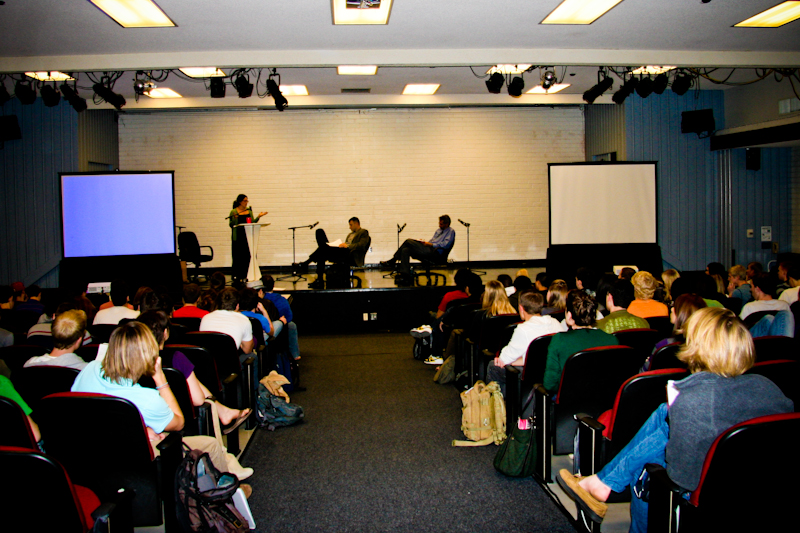You all remember it: The enormous white banner hanging from the side of Mayer’s Auditorium last December. How could you miss it? “7 Professors, 6 Units, 3 Weeks;” and right below that, a massive eyeball with a blossoming flower inside.
This is how the faculty decided to pitch their brand new interterm experiment. There were, however, several key numbers they left out. A more thorough poster may have read, “9 papers, 8 hours a day, 0 desks.” And instead of the artistic eye graphic, three words in bold black caps -– “TOTALLY WORTH IT!”
In my 6 semesters at this university, perhaps the most common conversation I’ve had with students revolves around the search for how to truly live a God-honoring life through secular vocations. One film student once gloomily concluded after leaving a Bible class, “Well, I guess the only way that I can really serve God is to drop out of film and become a Bible major.”
While this statement is certainly not true, it is an easy conclusion to make after our Bible classes reveal the overwhelming holiness of God. Should we steward our time in earthly pursuits when they all seem second best and trivial in comparison? IRIS not only serves up the answer to this quandary, it marinates it in the most profound selections of wisdom and applies the solution to situation after situation.
Biola already requires students to take an integration seminar for their major. However, these classes can be limited by the extent to which the single professor has experienced the integration of Scripture in his or her particular life.
Enter IRIS. Two English professors, one artist, one philosopher, one communication specialist and two theologians, all teaching from their expertise as it surrounds the cultural theme of the day. Each of these themes is extracted from a secular film, which is watched every evening through the lens of the morning’s lectures. I have experienced many discussion-based classes that provide time for students to disagree and challenge their professors but the undergraduate opinion nearly always bends to that of the Ph.D. Never before, however, have I experienced two equally knowledgeable and Biblically centered professors respectfully challenging each other in the presence of their students. This is, perhaps, IRIS’ greatest strength as it explores the turbulent waters of integration, where one answer does not always fit all. Each professor brings the strength of his own expertise to the table and through discussions and debates with the entire class, a vivid and wonderfully complete view of the topic emerges.
Dr. Kleist, the creator and lead professor of this course, stated on the first day that IRIS was aptly named because his vision for the class was that it would teach us to see. The purpose of most classes is to infuse the students with facts and teach them the “whats” of the world. IRIS brilliantly breaks new ground in Biola’s educational community as it teaches the students the “whys.” As a film student, I have learned how to light a beautiful shot in Cinematography class and about the nature of God’s glory in Theology I. But it was IRIS’ integration of disciplines that showed me why I should light a beautiful shot for God’s glory.
If Biola’s biblically centered education is like the T-bone steak of schooling, then IRIS is like offering that steak with a mountain of mash potatoes, fresh-baked cornbread and a perfect glass of merlot. In other words, this class is the very best thing that this university could have added to truly equip its students for Christ centered ministry in a secular society.







